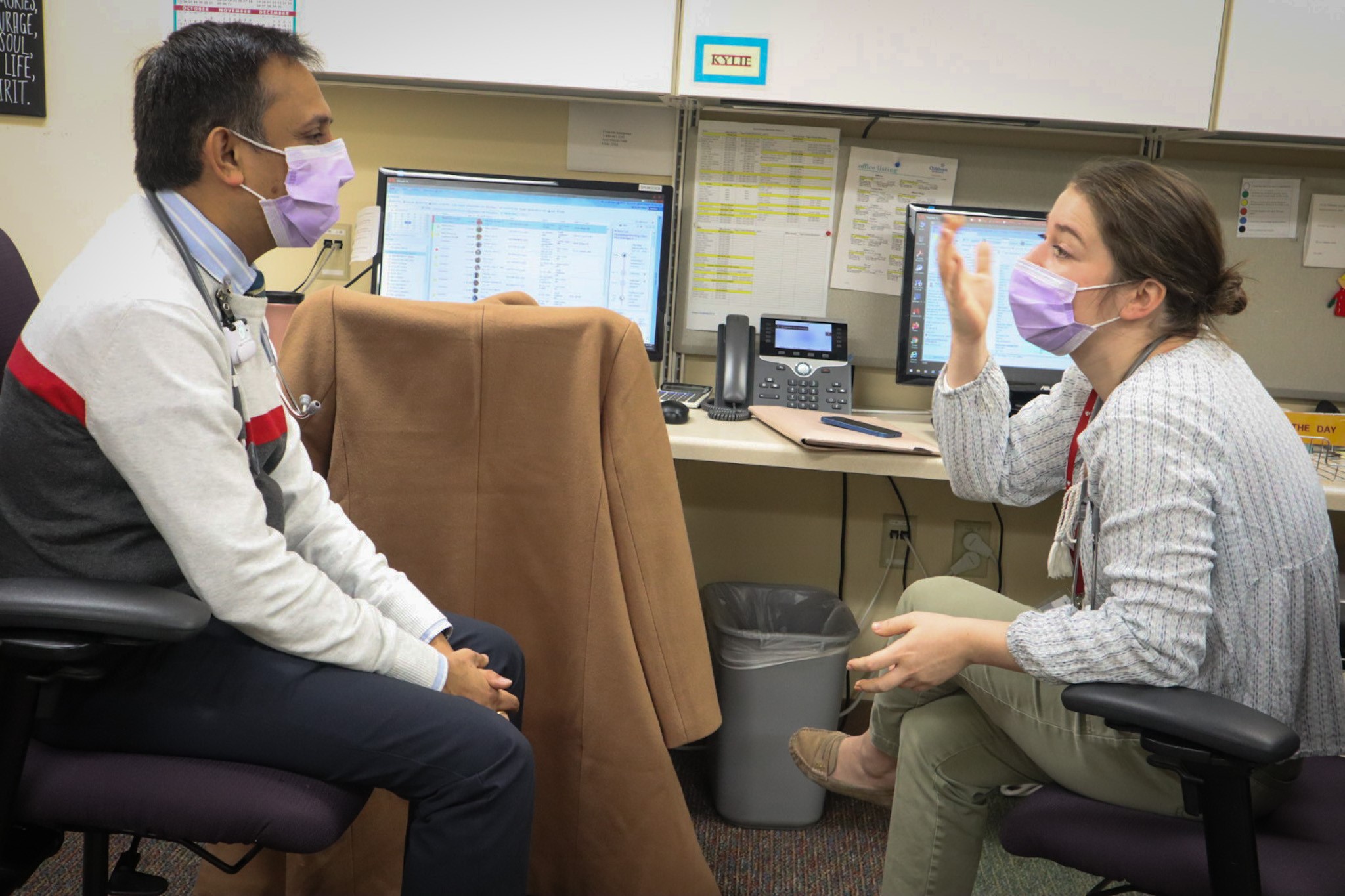Goals & Objectives

- Our fellowship program is a three-year program designed to provide the clinical, research, and teaching skills necessary to succeed as a Pediatric Hematologist/Oncologist
- Our program meets the American Board of Pediatrics (ABP) eligibility criteria for board certification
- As a fellow, you will spend about 90% of their your year in clinical rotations. In contrast, as a second or third year fellow, about 75% of your time is protected to train in research skills and complete a scholarly project.
- We strive to grant increasing autonomy throughout the program and to graduate fellows that are both confident in their independent clinical practice as well as competitive candidates for their dream job at graduation
Core Competencies
We support each of the 6 ACGME Core Competencies for Fellow Learning:
Patient Care
- Fellows in our program function as their patients’ primary hematologist or oncologist, including planning patients work up and treatment, enrolling on a clinical trial if applicable, leading difficult discussions, etc. (with attending support and guidance). Fellows have their own schedule for their continuity clinic to follow their patients longitudinally.
- We value multidisciplinary work, and our fellows learn to lead multidisciplinary teams in both the inpatient and outpatient settings.
- We have a wide catchment area, meaning that our fellows see a wide variety of clinical cases (both the common and the very uncommon) as well as care for patients from all types of cultures and backgrounds.
- We are a Children’s Oncology Group site and have several hematology and supportive care / survivorship clinical trials open as well, allowing the fellows the opportunity to learn and eventually lead clinical trial participation for their patients.
- Our fellows quickly gain confidence in their procedural skills and have ample opportunities to maintain these skills throughout the program.
Medical Knowledge
- Fellow didactics occur weekly, and are based on the board content specifications
- There are multiple additional learning opportunities monthly, including tumor boards, journal clubs, team meetings, Hem Path, and board review
- We send our senior fellows to the ASPHO board review course during their fellowship as an additional resource for medical knowledge and board studying
Practice-based Learning & Improvement
- Our senior fellows lead a multidisciplinary tumor board, requiring critical review of the literature.
- Our fellows lead our monthly journal club and learn skills for critical appraisal of literature.
- Our Fellow’s Academy includes courses that instruct our fellows in teaching, feedback, and practice improvement.
System Based Practice
- Our senior fellows lead a division specific M&M conference to evaluate and improve on system issues affecting patient care.
- Our fellows participate in house-wide M&M conferences pertinent to our patient population.
- Our fellows participate in and complete a Quality Improvement project.
Professionalism
- We hold our faculty to a high standard in this area and have many incredible physician leaders and mentors in professionalism, work life integration, and wellbeing.
Interpersonal & Communication Skills
- Our fellows complete consults in the inpatient and outpatient settings, and are instructed on communication back to the referring providers.
- Fellows become well-versed in patient care hand-offs, to a new team coming on service and for overnight call coverage.
- Fellows lead talks with patients and their families on new diagnoses, clinical trial participation, goals of care, and at end-of-life. They learn these difficult communication skills through mentoring and feedback from their attendings, formal didactics in Fellow’s Academy, practice, and rotating with our Palliative Care team.